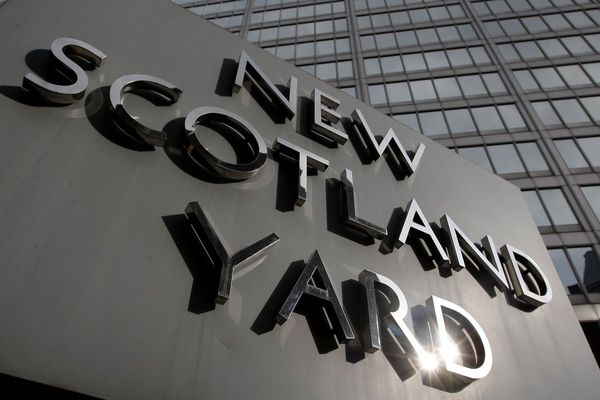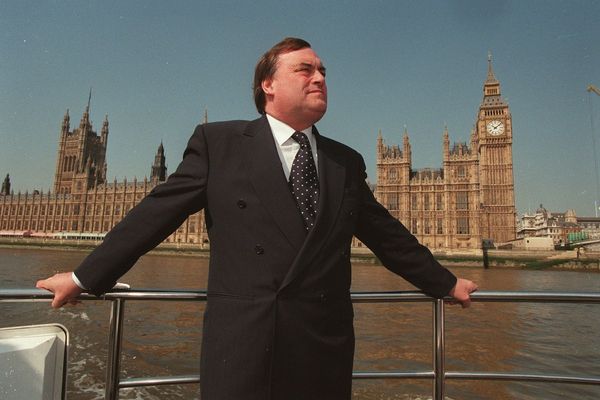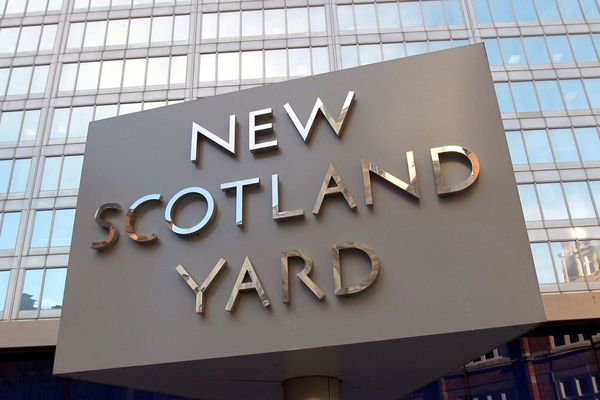
The hottest ticket at this year’s Glastonbury is a sweaty bacchanal presided over by pop’s foremost scientist. Charli XCX, who has spent the past 12 years crafting scuzzy, confessional bangers about sex, cars, cheating and all the messy stuff, arrives on the Tron-like Levels stage in a puff of toxic green smoke — the colour of the lo-fi cover art for Brat, her just-released new album and the sound of this summer for anyone with a vape habit and a history of self-loathing.
Dressed in a puffer jacket and cream body suit and hidden behind dark, don’t-look-me-in-the-eye sunglasses, she spins through a DJ set that pulls from Brat, modern dance-pop, and club classics such as CeCe Peniston’s “Finally”. Robyn shows up. So, too, does Shygirl. There are lasers, screams, keys, nonsense. Charli salutes mean girls, party girls, girlie girls. Everyone here is aware they are in the presence of a superstar.
Anecdotally, at least, little else on Friday at the festival shimmers with such A-list dynamism. You’re either at Charli or you’re a flop. Couldn’t get past the hastily erected barricades surrounding Levels? You just didn’t try hard enough. In fairness to Glastonbury, few could have predicted the pop explosion Charli was about to unleash mere weeks before the start of the festival. Even fewer could have predicted that Friday’s Pyramid Stage headliner, Dua Lipa, would be an outlier in a year dominated by brilliant, personal, ambitious pop. It’s no one’s fault exactly, but it does speak to a Glastonbury that’s got the genre a bit wrong this year.
Glastonbury’s relationship to pop music, and specifically the kind of purest, maximalist pop largely for and beloved by the girls and the gays, is rarely discussed when it comes to the festival’s evolution over time. Historically, pop artists here have felt so culturally and creatively significant that their artistry is unimpeachable (think Kylie Minogue in 2019 or “Run the World (Girls)”-era Beyoncé in 2011). Or they present with an undeniable and sometimes enigmatic cool, from Sugababes in 2003 and their overcrowded Friday set this year, to Rita Ora in 2013 — being British helps, too.
This has typically been the festival’s approach, and it’s typically gone very well. Scan over the pop acts who’ve played here over the last 25 years, and only Katy Perry in 2017 feels like a bit of a left-field choice — yes, she’s got incredible commercial heft, but there’s something about her catalogue that feels significantly more Radio 1 Big Weekend than Worthy Farm, right?
So why, then, is this year’s pop at Glastonbury so weird? Judging by the sea of people eager to get into Levels at midnight on Friday, Charli is one of the biggest names here, her small set radiating elite chic. That’s sort of the point, following on from a number of previous DJ sets — in places such as New York, Mexico and London’s Dalston Superstore — in support of the Brat release defined by their feral exclusivity and celebrity guests. But there should have been more of her, some main stage time to acknowledge her being Britain’s most innovative and important modern pop star.
The error feels particularly egregious when Camila Cabello has nabbed a primetime Other Stage slot. The singer, who found fame in the sub-Little Mix US girlband Fifth Harmony, has recently rebranded as Charli’s evil twin: a corporatised collection of messy party girl aesthetics that’s felt like an uneasy and occasionally mortifying skin suit. Cabello’s new material isn’t quite as indebted to Charli as many had assumed it would be — the double-take-inducing C, XOXO, released on Friday, leaps between hip-hop, hyper-pop, ballads and poorly timed Drake collabs — but it feels odd that she’s been afforded such a massive platform here considering the blandly commercial pop that defined her early fame.
Missing at this year’s Glastonbury, too, are pop’s ladies-in-waiting. Where is Chappell Roan? A gloriously flamboyant queer pop dramatist who’s blown up in the last six months courtesy of a handful of sometimes years-old bangers going stratospheric all at once, few contemporary American artists feel more built-in-a-lab for a Glastonbury slot. Arguments could easily be made that Sabrina Carpenter should have grabbed a slot here this year as well — her brand of cheeky, euphemistic and purely pleasurable boppery has been one of the dominant sounds of this summer.
There is at least a slot for Rachel Chinouriri, one of the most exciting young British pop stars currently working, but it would have been nice to see her given more than the lunchtime Other Stage slot on the Sunday. After all, there is clearly a massive audience for pop here, as evidenced by the crowds turned away from Sugababes, and the relatively sparse gatherings for many on the Pyramid Stage on Friday — the gulf between the squashed mania of those watching the “Push the Button” hitmakers and the muted reception for PJ Harvey on the main stage an hour later was staggering.
The big elephant in the room, of course, is that Lipa — who should have been this year’s must-see headliner alongside the reliable if unexciting Coldplay and the sadly better-on-record SZA — is at Glastonbury in the midst of a creative lull. Radical Optimism, her May record, has fizzled, a too-anonymous summer collection that struggled to match the “psychedelic pop” sounds Lipa had hinted at in pre-release interviews, and exposed some of her artistic limitations: great vibes but limited personality; vapour in an era calling out for something solid.
Her Friday headlining set was by all accounts very, very good, but dominated by older hits, suggesting an artist who knows what has managed to capture the zeitgeist and what hasn’t. In his review, The Independent’s Jazz Monroe wrote that her set’s Radical Optimism cuts felt like “stodgy, almost defensive inclusions” in comparison to undeniable classics such as “Physical” and “Don’t Start Now”.
Charli, meanwhile, had sheer buzz on Friday night — big, attention-hogging, seductive anticipation. It didn’t even matter that some of the biggest tracks on Brat didn’t get played. Was I saddened that we didn’t get the Lorde remix of “Girl, so confusing”, an absolutely transportive blur of diaristic melancholy and f***-it-let’s-party synths that is absolutely the best song of 2024 so far? Of course! But that also wasn’t the vibe: her set was about chaos, noise and body heat, and the sheer, in-the-moment thrill of being a total, unimpeachable train wreck and worrying about the fallout later.
“I want you to be mean,” Charli begs at one point, drawing out the last word in her cut-glass British accent with its LA drawl. “I want you to be bitchy. I want you to be c***y.”
This was a set that spoke to the power of pop music when it’s in the hands of a genius. Next year, hopefully, Glastonbury will give the genre the respect it deserves. And the right stages.







